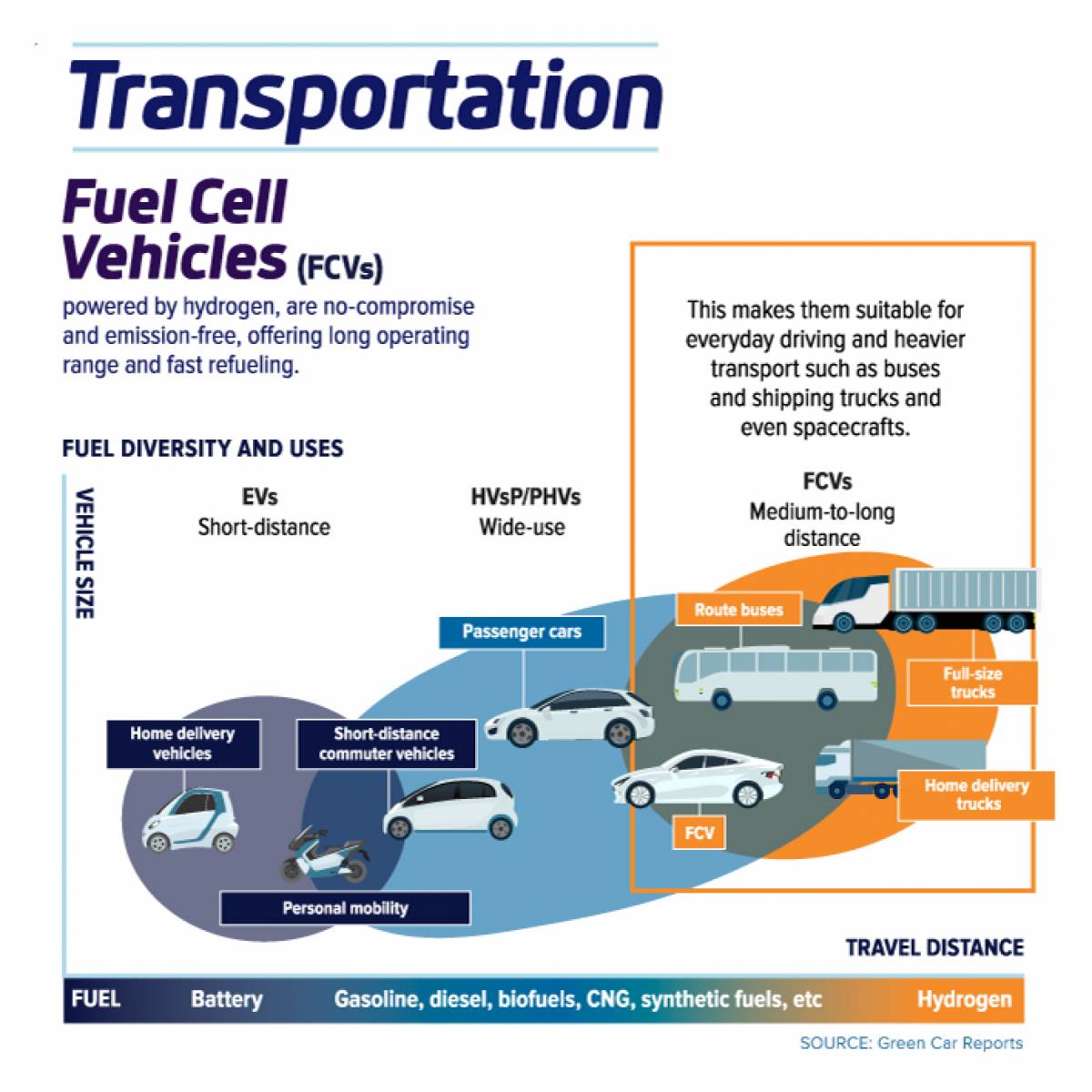CHFCA help brings zero-emission hydrogen vehicles to Modo’s fleet
The reasons to carshare with Modo are abundant—it’s convenient, affordable, and has recently become even more sustainable. The B.C.-based co-op has not only helped fill some of the gaps left behind by car2go’s departure, but the member-owned co-operative has also been busy building an eco-friendly fleet.
Modo has demonstrated its commitment to sustainability by partnering with the Canadian Hydrogen and Fuel Cell Association (CHFCA). With assistance from the CHFCA and Hyundai Auto Canada, Modo has welcomed two Hyundai NEXO fuel cell electric vehicles (FCEVs) to its fleet, making it the first carshare in North America to offer a hydrogen option to members. These zero-emission cars are a step in the right direction when it comes to combatting climate change.
“Currently one in five vehicles in Modo’s fleet is hybrid, electric or hydrogen,” says Kilburn. “But vehicles are only part of the solution. We are collaborating with our municipal partners to address much needed EV charging infrastructure, and with the CHFCA, which is leading the way on hydrogen refueling stations.”
The association focuses on promoting the adoption of innovative hydrogen and fuel cell technologies and advocating for more hydrogen refuelling infrastructure to support FCEV roll-out. Its work has already led to the opening of Canada’s first two public hydrogen refueling stations in British Columbia and four more on the horizon.
“The CHFCA’s ambition is to pave the way for a clean, low-carbon-intensity hydrogen production facility here in the Lower Mainland,” says Mark Kirby, president and chief executive officer at the CHFCA. “In addition to supplying the retail stations, it will provide hydrogen to decarbonize our residential and commercial heating systems, our local industries as well as supplying fuel for clean hydrogen buses, commuter trains, trucks, ferries, and even aviation.”

There’s growing awareness of conventional electric vehicles among consumers, yet surprisingly, little has been shared about their innovative hydrogen counterparts. Like the fact that hydrogen is the most abundant element in our universe, and the simplest element—with only one proton and one electron—hydrogen has no harmful carbon atoms and offers two to three times more energy than any fuel in use today. Add to that the fact that hydrogen’s unique characteristics make it one of the safest energy sources when compared to flammable fuels such as gasoline, diesel, or natural gas—the potential uses for this fuel source seems limitless.
But understandably, Modo’s Kilburn acknowledges that new technologies often come with a certain amount of apprehension and notes that her team is helping mitigate this by ramping up member education and awareness. “When it comes to hydrogen fuel cell vehicle technology, I think there’s a misconception that it’s complicated,” says Kilburn. “Which is why we’ve put considerable effort into member education around the new technology, how it works, what to expect, and how to refuel.”
